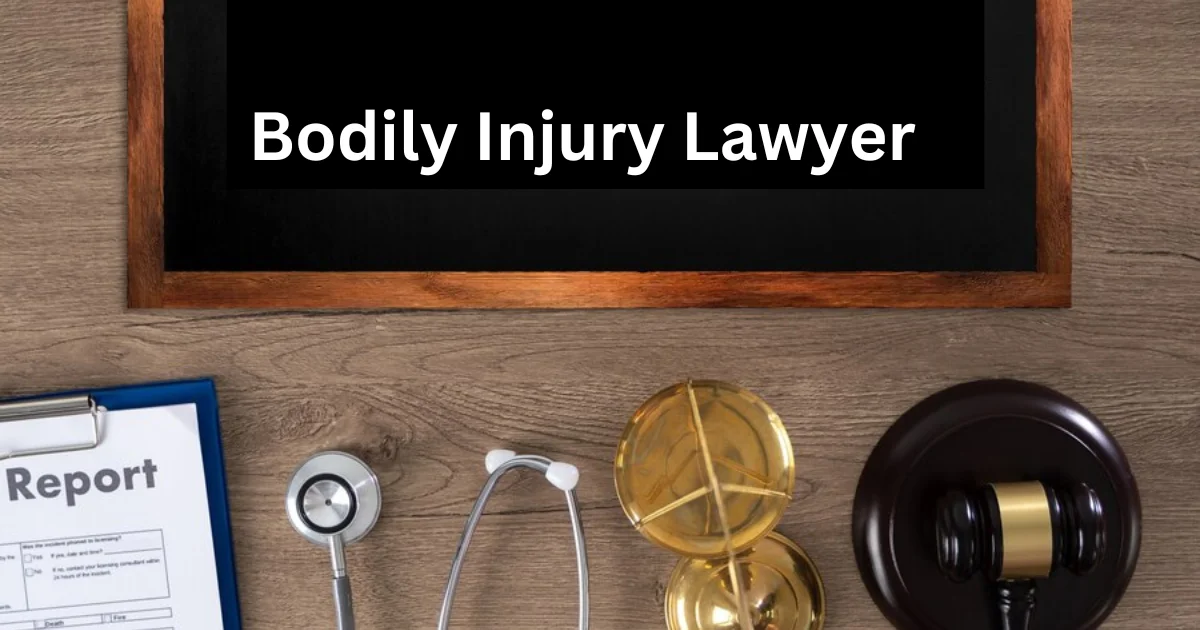Introduction
When life takes an unexpected turn and you find yourself dealing with a personal injury, it’s crucial to have the right legal representation by your side. In this article, we will delve into the world of injury attorney lawyers, helping you navigate the complex process of finding the perfect advocate for your needs.
Understanding Personal Injury Law
Before we dive into the process of choosing an injury attorney, let’s first clarify what personal injury law entails. Personal injury law covers a wide range of cases, from car accidents and slip-and-fall incidents to medical malpractice and product liability claims. It allows individuals who have been harmed due to someone else’s negligence or intentional wrongdoing to seek compensation for their injuries.
The Role of an Injury Attorney
1. Providing Legal Expertise
Injury attorneys are legal experts specializing in personal injury cases. They possess in-depth knowledge of relevant laws, regulations, and precedents.
2. Investigating and Building a Case
These lawyers investigate the circumstances of your injury, gather evidence, and build a strong case on your behalf.
3. Negotiating with Insurance Companies
Injury attorneys are skilled negotiators who handle communications with insurance companies to secure fair settlements.
Why Hiring an Injury Attorney is Vital
1. Maximizing Compensation
A competent injury attorney can help you receive the maximum compensation possible for your injuries, medical bills, lost wages, and pain and suffering.
2. Reducing Stress
Legal proceedings can be overwhelming. An attorney can ease your burden by handling the complexities of your case.
3. Enhancing Your Odds
Experienced injury lawyers have a track record of success in court, increasing your chances of a favorable outcome. Right Injury Attorney
How to Choose the Right Injury Attorney
Now that you understand the significance of hiring an injury attorney let’s explore how to select the right one for your specific case.
1. Experience Matters
Choose an attorney with extensive experience in handling cases similar to yours. This ensures they understand the intricacies of your situation.
2. Track Record of Success
Review the lawyer’s track record. A history of successful settlements and court verdicts is a good indicator of their competence.
3. Clear Communication
Effective communication is key. Your attorney should be accessible, responsive, and able to explain legal jargon in plain language.
4. Transparent Fees
Discuss fees upfront. Ensure you understand their billing structure, including contingency fees, where they only get paid if you win your case.

Personal Compatibility
When choosing an injury attorney, it’s not just about their legal expertise and track record; personal compatibility plays a crucial role in the success of your case. Here’s why it matters:
1. Trust and Open Communication
For your attorney-client relationship to be effective, trust is paramount. You need to feel comfortable discussing sensitive details of your case and have confidence that your lawyer is genuinely working in your best interest. Personal compatibility fosters trust, making it easier to maintain open and honest communication throughout your legal proceedings.
2. Understanding Your Needs
Every personal injury case is unique, and your attorney should tailor their approach to your specific needs. Personal compatibility ensures that your lawyer understands your concerns, objectives, and expectations, allowing them to provide personalized legal counsel and strategies.
3. Ease of Collaboration
A compatible attorney-client relationship often leads to smoother collaboration. You’ll find it easier to work together, share information, and make informed decisions about your case. This synergy can significantly impact the overall efficiency and effectiveness of your legal representation.
4. Emotional Support
Dealing with a personal injury can be emotionally taxing. A compatible attorney can offer not only legal guidance but also emotional support during this challenging time. They can empathize with your situation and provide a reassuring presence throughout the legal process.
In summary, personal compatibility with your injury attorney is more than just a bonus; it’s a fundamental aspect of your legal journey. When you feel comfortable, understood, and supported by your lawyer, you’ll be better equipped to face the challenges of your case and ultimately achieve the best possible outcome.
Conclusion
Injuries can have a profound impact on your life, but the right injury attorney can make a world of difference. By following the guidelines outlined in this article, you’ll be well-prepared to find the perfect legal advocate to fight for your rights and help you get the compensation you deserve.
FAQs
1. How long do I have to file a personal injury claim?
The statute of limitations varies by state and the type of injury. It’s best to consult with an attorney promptly to ensure you don’t miss the deadline. Right Injury Attorney
2. What if I can’t afford an attorney?
Many personal injury attorneys work on a contingency fee basis, meaning they only get paid if you win your case. This makes legal representation accessible to most people.
3. How much compensation can I expect?
The amount of compensation depends on various factors, such as the severity of your injuries, medical expenses, lost wages, and more. Your attorney will assess your case and provide a more accurate estimate.
4. Can I switch attorneys if I’m not satisfied?
Yes, you have the right to change attorneys if you are not satisfied with their services. However, it’s essential to discuss your concerns with them first and consider the timing of the change.
5. What if the responsible party doesn’t have insurance?
Your attorney will explore all avenues for compensation, including pursuing the at-fault party’s assets or exploring uninsured/underinsured motorist coverage if applicable.






